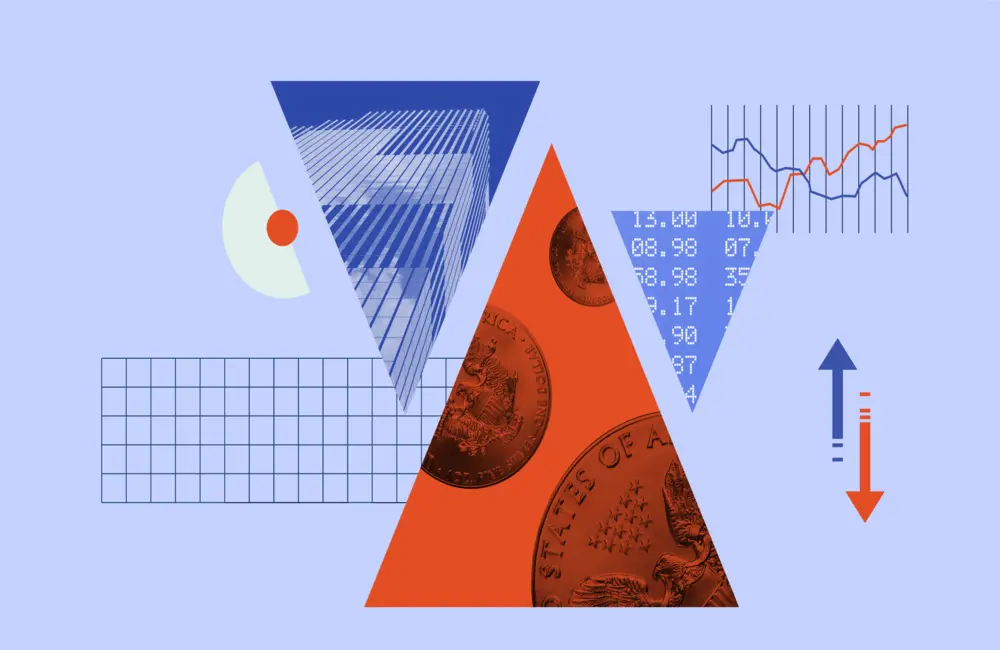ASX futures were 53 points higher, or 0.78 per cent, at 6774 at 7:00am AEDT on Tuesday, signalling a positive start.
The main United States stock indexes perked up on Monday as investors prepared for the Federal Reserve’s interest rate decision and worried about the health of the United States economy.
The S&P 500 rose 0.7 percent, halting a two-day losing streak. The Dow Jones Industrial Average rose 0.6 percent, and the technology-focused Nasdaq Composite gained 0.8 percent. The indexes initially opened down on Monday morning but shifted to positive territory as the closing bell approached.
This week, investors are paying close attention to a round of interest-rate decisions from central banks. The Bank of England follows with its own decision on Thursday.
“We fear the Fed might surprise us for a jumbo hike,” said Florian Ielpo, head of macro at Lombard Odier Investment Managers. The corporate warnings from a week ago, he said, indicated that “we very well might be at the doorstep of the US recession.”
In commodities, The price of Brent crude oil was up 0.54% to $US91. 84 a barrel, gold was unchanged at 0.03% to US$1,675.53.
On the domestic bond market, yields on 2 year government bonds were down at 3.13% and 10 year bonds were at 3.67%. Internationally, the yield on the 2 Year US Treasury notes was at 3.94% and the yield on the 10 Year US Treasury notes was at 3.49%.
The Australian dollar rose to 67.22 US cents from 67.17 US at the close of trade. The Wall Street Journal Dollar Index, which measures the U.S. currency against 16 others, was flat at 101.50.
Asia
China shares finished the session down, following a broad selloff in equities as fears of a recession gained ground and interest rates rose. The benchmark Shanghai Composite Index slipped 0.3% to 3115.60 and the Shenzhen Composite Index fell 0.8% to 1990.36. The tech-heavy ChiNext Price Index fell 0.7% to 2350.38. Software developers were among the biggest losers, with the sector retreating from gains late last week on the release of a new draft of a cybersecurity policy, which had lifted investor sentiment for the sector. China National Software & Service lost 1.6% and Yonyou Network Technology dropped 7.7%.
The benchmark Hang Seng Index in Hong Kong lost 1.0% to 18565.97, coming closer to the March 15 closing low level of 18415.08, and as sentiment toward China's property sector remains weak. The general downbeat tone of property-linked activity data persisted in August, according to official data, Nomura analysts say in a note. Longfor Group dropped 6.0 percent and Country Garden Holdings fell 3.3 percent. China Vanke fell 1.2% after news its property-management arm Onewo Inc. will raise up to US$783.6 million in a Hong Kong IPO. Retailers in Hong Kong and the carrier Cathay Pacific were higher on hopes that travel restrictions brought on by the pandemic may be loosened even more for the city. Shares in Chow Tai Fook Jewellery surged 6.2% and Cathay Pacific was up 1.1%.
Shares Shares Japanese stocks closed lower as electronics stocks fell as persistent worries about aggressive Fed tightening sapped sentiment. Tokyo Electron Ltd. fell 4.3% and Keyence retreated 3.7%. Bank stocks, for their part, finished modestly higher as the gains in US Treasury yields continued. Resona Holdings gained 3.6% and Sumitomo Mitsui Trust Holdings rose 1.8%. The Nikkei Stock Average dropped 1.1% to 27567.65.
Europe
Stock markets in Europe traded mixed on Tuesday. The pan-European Stoxx Europe 600 index fell 0.37 point, or 0.1%, to 407.87, but Germany’s DAX added 61.98 points, or 0.5%, to close at 12803.24 while France’s CAC 40 index dropped 15.71 points, or 0.3%, to 6061.59.
Markets in the U.K. were closed for the funeral of Queen Elizabeth II.
North America
Stocks were ticked higher on Monday as investors awaited the Federal Reserve’s decision on interest rates and worried over the health of the United States’ economic growth.
The S&P 500 rose 0.7 percent, ending a two-session losing streak. The Dow Jones Industrial Average added 0.6%, and the technology-focused Nasdaq Composite gained 0.8%. The indexes opened down on Monday morning but slipped back into positive territory as the closing bell neared.
The S&P and Nasdaq last week posted their largest weekly drops since June after a slew of downgrades and warnings from U.S. companies fanned worries about the pace of growth of the global economy. FedEx and General Electric were among the companies that cited a swoon in the economy.
The messages helped stoke concerns among investors about how much corporate earnings can remain intact amid further interest rate increases by the Fed and, possibly, a recession in the US economy.
For much of this year, investors have been emboldened by mostly resilient corporate results, even as inflation has hit levels not seen in decades. Yet as earnings estimates have slid of late, some investors are rethinking their position in stocks.
Investors are largely waiting for a round of interest-rate decisions by central banks this week. The Bank of England will follow the Fed’s decision, on Thursday.
Futures markets on Monday indicated that traders are betting that there is an 82% probability the Fed would lift interest rates by 0.75 percentage point and an 18% probability the US central bank would lift rates by a full percentage point, according to CME Group.
“We fear the Fed could surprise us again with another jumbo hike,” said Florian Ielpo, head of macro at Lombard Odier Investment Managers. Yet last week’s corporate warnings had signaled, he said, that “we very well could be at the entrance of the U.S. recession.”
Shares of vaccine makers tumbled Monday after President Biden declared in a televised interview that the pandemic was over. Moderna dropped 7%. Novavax dropped 6.7% and Pfizer was down 1.3%.
Investors later in the week will sort through results from companies like Costco Wholesale and home builder Lennar. They will also receive full earnings results from FedEx on Thursday, following its sales warning last week.
This year, some traders have become accustomed to rebounds following bouts of selling. Last week was the eighth time this year that the S&P 500 fell more than 3% in a week.
Of seven previous instances, the benchmark index ended the following week higher four times with an average gain of 4.4%, said analysts at JPMorgan Chase in a note Monday, though they said such a rally would probably be concentrated in mega cap tech stocks, among other areas.























